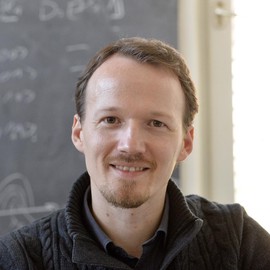Robust quantum many-body scars in lattice gauge theories
Abstract
Quantum many-body scarring is a paradigm of weak ergodicity breaking arising due to the presence of special nonthermal many-body eigenstates that possess low entanglement entropy, are equally spaced in energy, and concentrate in certain parts of the Hilbert space. Though scars have been shown to be intimately connected to gauge theories, their stability in such experimentally relevant models is still an open question, and it is generally considered that they exist only under fine-tuned conditions. In this work, we show through Krylov-based time-evolution methods how quantum many-body scars can be made robust in the presence of experimental errors through utilizing terms linear in the gauge-symmetry generator or a simplified pseudogenerator in $U(1)$ and $\mathbb{Z}_2$ lattice gauge theories. Our findings are explained by the concept of quantum Zeno dynamics. Our experimentally feasible methods can be readily implemented in existing large-scale ultracold-atom quantum simulators and setups of Rydberg atoms with optical tweezers.
Published 15 May 2023

